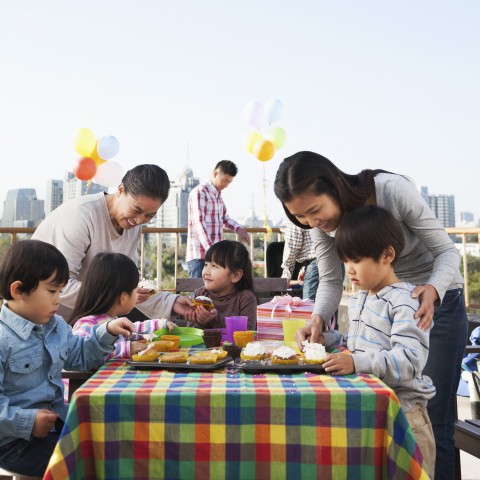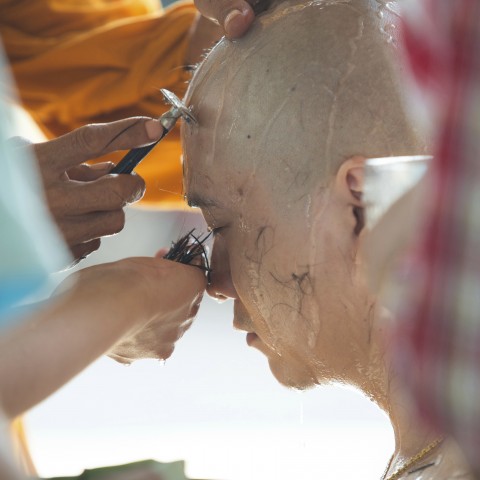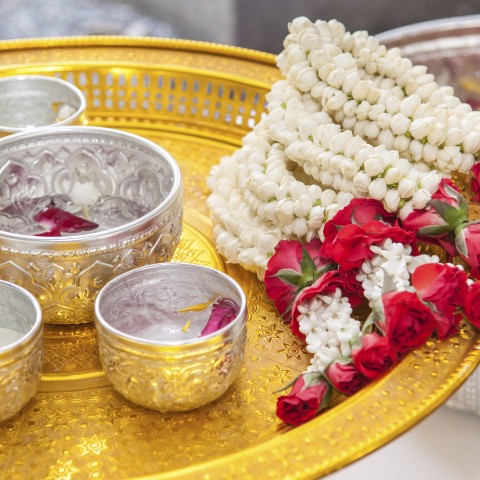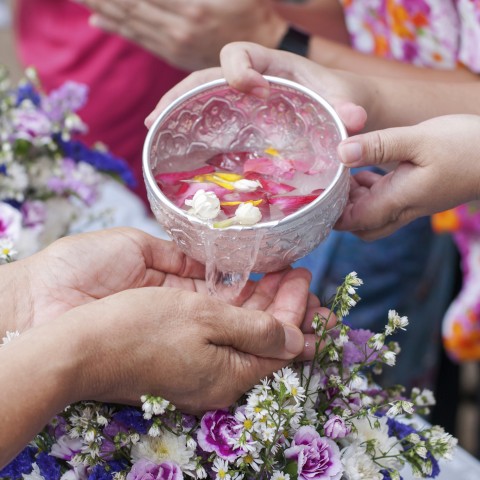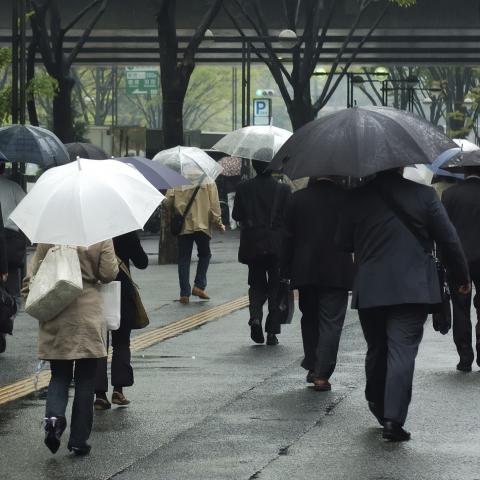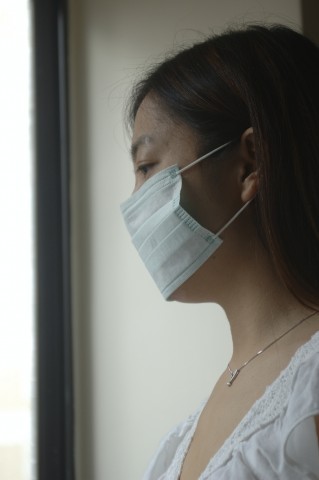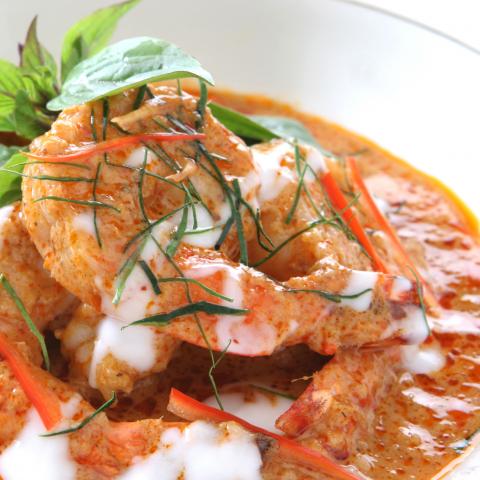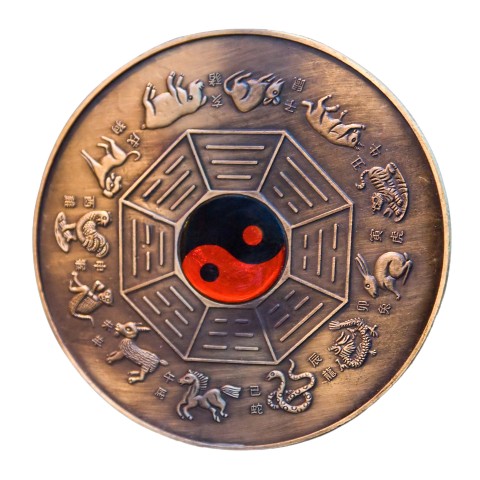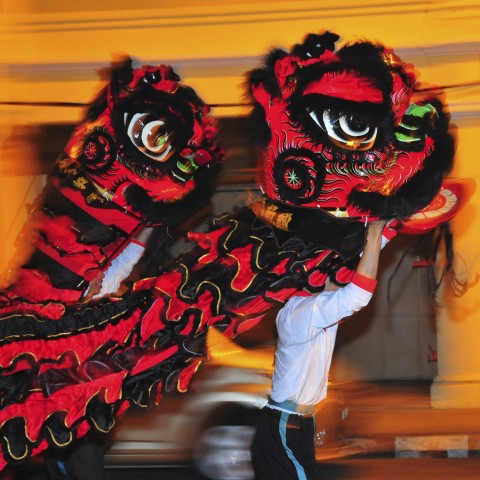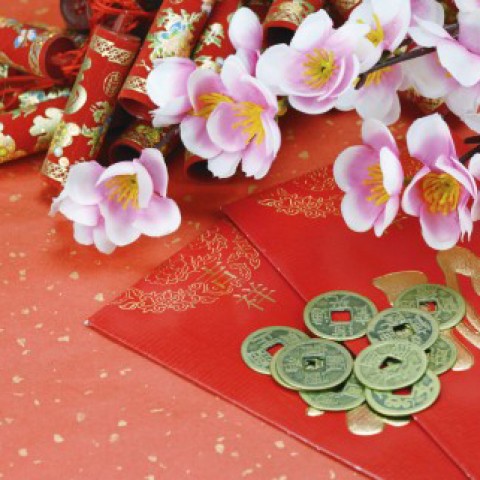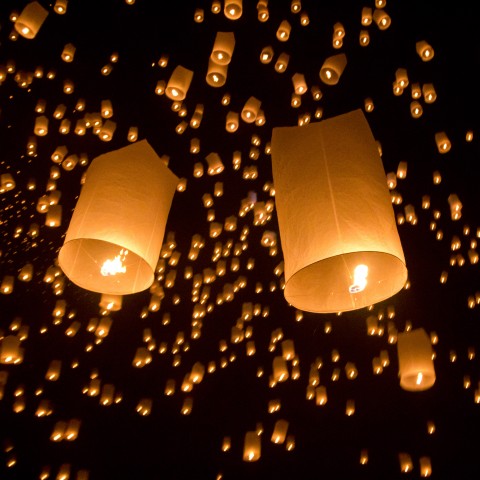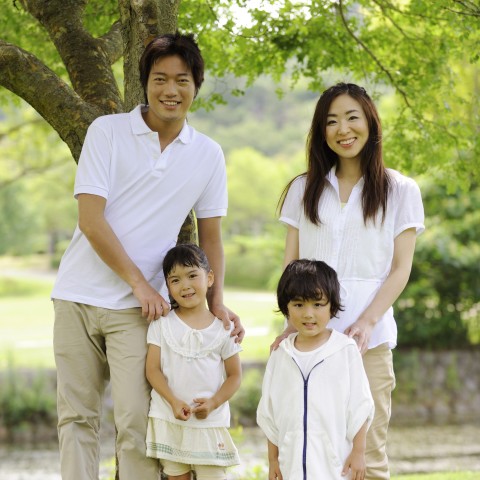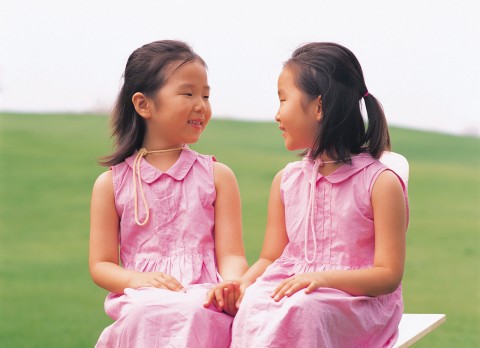Imagine that you’re pissed. The anger fills up your body. You’re annoyed, and you just feel like hitting something. Naturally, you want to let your anger out, and one way to do so is through words. In this lesson, you’ll learn about how to express that you’re angry in Thai.
Learning the most common angry Thai phrases is not only a great way to learn new sentence patterns and see Thai grammar at work, but it will also help you understand more about Thai people’s behavior when angry. Throughout this lesson, you’ll see that the way Thai people convey their anger through words is different from how people in other cultures do so.
In this lesson, we’ll first teach you basic Thai words for anger that you should know, and how Thai people express their anger. You’ll get to learn how to use the word “angry” in Thai sentences and study more anger-related vocabulary. In addition, we’ll provide the English translations of each phrase so you can know exactly what you’re saying!

Table of Contents
- Words for “Angry” in Thai
- Angry Imperatives
- Angry Warnings
- Angry Blames
- Describing How You Feel in Thai
- Angry Exclamations in Thai
- How to Calm Yourself Down
- Conclusion
1. Words for “Angry” in Thai
Let’s start by learning how to say “anger” in Thai. Thai people often convey their emotions, especially anger, through their tone of voice. The sentences and phrases in the following sections are commonly used by native Thai speakers when angry, but keep in mind that they also use them when they’re not angry. It’s the tone, not the words, that really implies anger.
Another point you should know is that, naturally, when people are angry, they sometimes let emotions cloud their judgment and end up saying some rude words. If you’re in Thailand, don’t be surprised if you hear some of these rude Thai words from time to time.
Please note that just like people in some other countries, Thai people have a negative attitude toward people who swear or speak rudely. So you have to be careful in this regard. Still, as a language-learner, you need to understand not only the polite Thai words but also the not-so-polite ones. Thai people don’t always speak nicely and it would be weird if you only understood the nicer words.
1- Rude Thai Words
When Thai people become angry, they sometimes use different pronouns to refer to themselves or other parties:
- กู (guu) is a rude version of the pronoun “I” in Thai. It can be used by both male and female speakers.
- มึง (mueng) is a rude version of the pronoun “you” in Thai. It can be used for both males and females.
If you’ve been learning Thai for some time, you may recognize ค่ะ (khâ) and ครับ (khráap), which Thai people put at the end of sentences to make them sound polite. However, when Thai people become angry, they put วะ (wá) at the end of sentences instead. This word makes sentences sound impolite and can convey angry emotions in Thai.
Now that you know how Thai people express their anger, let’s see some anger-related Thai vocabulary. Below are some basic words and phrases you can use to express your anger.
2- Vocabulary
- โกรธ (gròot) is “angry.”
- ความโกรธ (khwaam-gròot) is “anger.”
- ฉุน (chǔn) is “mad.”
- เสียใจ (sǐia-jai) is “sad.”
- โกรธมาก (gròot-mâak) is “very angry.”
- เสียใจมาก (sǐia-jai-mâak) is “very sad.”
2. Angry Imperatives
Now that you’ve learned some Thai words for “angry,” let’s learn a few angry Thai phrases that you can use during a heated conversation.
1- Shut up.
Thai: เงียบ (ngîiap); หุบปาก (hùp-bpàak)
Example 1:
ช่วยเงียบ ๆ หน่อยได้มั้ย ประสาทจะกินแล้ว
chûuay-ngîiap-ngîiap-nhòi-dâi-mái bprà-sàat-jà-gin-láaeo
“Would you shut up? I’m going crazy (because of your voice).”
Example 2:
หุบปาก อย่าพูดมาก น่ารำคาญ
hùp-bpàak yhàa-phûut-mâak nâa-ram-khaan
“Shut up! Don’t talk, because it is annoying.”
Additional note: Despite conveying the same meaning, เงียบ (ngîiap) is more polite than หุบปาก (hùp-bpàak). Actually, the word เงียบ (ngîiap) itself doesn’t convey anger. So if you hear this word, you can judge whether the speaker is angry or not by the tone.
2- Stop.
Thai: หยุด (yhùt)
Example:
จะทำอะไรหนะ หยุดตรงนั้นเลยนะ
jà-tham-à-rai-nà yhùt-dtrong-nán-looei-ná
“What are you doing? Stop right there!”
Additional note: Similar to เงียบ (ngîiap), the word หยุด (yhùt) itself doesn’t convey anger. So if you hear this word, you can judge whether the speaker is angry or not by the tone.
3- Cut it out.
Thai: หยุดเดี๋ยวนี้ (yhùt-dǐiao-níi)
Example:
หยุดเดี๋ยวนี้เลยนะ เธอกล้ารื้อของส่วนตัวฉันได้ยังไง
yhùt-dǐiao-níi-looei-ná thooe-glâa-rúue-khǎawng-sùuan-dtuua-chǎn-dâi-yang-ngai
“Cut it out now. How dare you go through my personal things?”
4- Leave me alone.
Thai: อย่ามายุ่ง (yhàa-maa-yûng)
Example:
อย่ามายุ่ง เธอสร้างปัญหามากพอแล้ว
yhàa-maa-yûng thooe-sâang-bpan-hǎa-mâak-phaaw-láaeo
“Leave me alone, you already caused me a lot of trouble.”
Additional note: ปล่อยฉันไว้คนเดียว (bplàauy-chǎn-wái-khon-diiao) literally means “leave me alone” in Thai. However, its literal meaning conveys sadness rather than anger, so using อย่ามายุ่ง (yhàa-maa-yûng) is better.
5- Get lost.
Thai: ไปให้พ้น (bpai-hâi-phón); ไสหัวไปไกล ๆ (sǎi-hǔua-bpai-glai-glai)
Example 1:
ไปให้พ้น ฉันไม่อยากเห็นหน้าเธออีก
bpai-hâi-phón chǎn-mâi-yàak-hěn-nhâa-thooe-ìik
“Get lost! I don’t want to see your face again.”
Example 2:
วัน ๆ สร้างแต่เรื่อง ไสหัวไปให้ไกล ๆ เลยนะ
wan-wan-sâang-dtàae-rûueang sǎi-hǔua-bpai-hâi-glai-glai-looei-ná
“You cause nothing but trouble, just get lost!”
Additional note: Despite conveying the same meaning, ไปให้พ้น (bpai-hâi-phón) is more polite than ไสหัวไปไกล ๆ (sǎi-hǔua-bpai-glai-glai).
3. Angry Warnings
Let’s learn angry Thai phrases that are used as a warning. Use these Thai sentences to warn someone that you’re getting angry.
1- Don’t mess with me.
Thai: อย่ามาลองดีนะ (yhàa-maa-laawng-dii-ná); อย่ามาแหยมนะ (yhàa-maa-yhǎaem-ná)
Example 1:
ทำงานตามที่บอกไป อย่ามาลองดีนะ
tham-ngaan-dtaam-thîi-bàawk-bpai yhàa-maa-laawng-dii-ná
“Just do what you are told to do, don’t mess with me.”
Example 2:
ถอยไปไกล ๆ เลย อย่ามาแหยมนะ
thǎauy-bpai-glai-glai-looei yhàa-maa-yhǎaem-ná
“Back off, don’t mess with me.”
Additional note: Despite conveying the same meaning, อย่ามาลองดีนะ (yhàa-maa-laawng-dii-ná) is more formal than อย่ามาแหยมนะ (yhàa-maa-yhǎaem-ná). อย่ามาแหยมนะ (yhàa-maa-yhǎaem-ná) is used in spoken language.
2- You’re asking for trouble.
Thai: อย่าหาเรื่องนะ (yhàa-hǎa-rûueang-ná); อย่าแส่หาเรื่อง (yhàa-sàae-hǎa-rûueang)
Example 1:
ทำตัวดี ๆ อย่าหาเรื่องนะ
tham-dtuua-dii-dii yhàa-hǎa-rûueang-ná
“Behave, you are asking for trouble now.”
Example 2:
ใช่เรื่องนายรึเปล่า ถ้าไม่ใช่ก็อย่าแส่หาเรื่อง
châi-rûueang-khǎawng-naai-rúe-bplào thâa-mâi-châi-gâaw-yhàa-sàae-hǎa-rûueang
“If it is not your business, then just back off. You’re asking for trouble now.”
Additional note: Actually, เธอกำลังหาปัญหาใส่ตัวอยู่ (thooe-gam-lang-hǎa-bpan-hǎa-sài-dtuaa-yhùu) is the literal meaning of “You’re asking for trouble.” However, Thai people don’t say that. We use อย่าหาเรื่องนะ (yhàa-hǎa-rûueang-ná) or อย่าแส่หาเรือง (yhàa-sàae-hǎa-rûueang), which literally mean “Don’t ask for trouble.” Comparing อย่าหาเรื่องนะ (yhàa-hǎa-rûueang-ná) and อย่าแส่หาเรื่อง (yhàa-sàae-hǎa-rûueang), the first one is more polite than the second one.
3- Don’t make me say it again.
Thai: อย่าให้ต้องเตือนอีกนะ (yhàa-hâi-dtâawng-dtuuean-ìik-ná)
Example:
รู้ใช่มั้ยว่าถ้าผลการเรียนไม่ดีจะเป็นยังไง ทำตัวดี ๆ อย่าให้ต้องเตือนอีกนะ
Rúu-châi-mái-wâa-thâa-phǒn-gaan-riian-mâi-dii-jà-bpen-yang-ngai tham-dtuua-dii-dii yhàa-hâi- dtâawng-dtuuean-ìik-ná
“You do know what would happen if your school report remains bad, right? So be a good student. Don’t make me say it again.”
4- This is my last warning.
Thai: เตือนครั้งสุดท้ายนะ (dtuuean-khráng-sùt-tháai-ná)
Example:
เตือนครั้งสุดท้ายนะ ถ้ายังสอบตกอีกจะไม่ให้เล่นเกมส์แล้ว
dtuuean-khráng-sùt-tháai-ná thâa-yang-sàawp-dtòk-ìik-jà-mâi-hâi-lên-geem-láaeo
“This is my last warning. If you fail another test, you will no longer be allowed to play games.”
5- I don’t want to see you again.
Thai: อย่ามาให้เห็นหน้าอีก (yhàa-maa-hâi-hěn-nhâa-ìik)
Example:
ถ้ายืนยันจะทำแบบนี้ิ ก็อย่ามาให้เห็นหน้าอีกนะ
thâa-yuuen-yan-jà-tham-bàaep-níi gâaw-yhàa-maa-hâi-hěn-nhâa-ìik-ná
“I don’t want to see you again if you insist on doing that.”
6- Don’t be silly.
Thai: อย่างี่เง่า (yhàa-ngîi-ngâo)
Example:
อย่างี่เง่านะ จะไม่โกรธอะไรกับเรื่องไม่เป็นเรื่อง
yhàa-ngîi-ngâo-ná jà-maa-gròot-à-rai-gàp-rûueang-mâi-bpen-rûueang
“Don’t be silly, you are making a problem out of nothing.”
7- I will not tolerate that.
Thai: เหลือทนแล้วนะ (lǔuea-thon-láaeo-ná); ทนไม่ไหวแล้ว (thon-mâi-wǎi-láaeo)
Example 1:
เหลือทนแล้วนะ วัน ๆ ไม่ทำอะไรให้มีประโยชน์เลย
lǔuea-thon-láaeo-ná wan-wan-mâi-tham-à-rai-hâi-mii-bprà-yòot-looei
“I will not tolerate this. You don’t do anything useful at all.”
Example 2:
ทำไมเธอถึงซกมกได้ขนาดนี้ ฉันทนไม่ไหวแล้ว
tham-mai-thooe-thǔng-sók-mók-dâi-khà-nàat-níi chǎn-thon-mâi-wǎi-láaeo
“How can you be this messy? I will no longer tolerate this.”
8- It is none of your business.
Thai: อย่าเสือก (yhàa-sùueak)
Example:
นี่มันเรื่องในครอบครัวของฉัน อย่าเสือก
nîi-man-rûueang-nai-khrâawp-khruua-khǎawng-chǎn yhàa-sùueak
“This is my family’s issue. It is none of your business.”
Additional note: This word is viewed as a bit rude.
4. Angry Blames
This section will teach you another type of angry phrase in Thai: the angry blame. Below is a list of phrases you can use.
1- What were you thinking?
Thai: คิดบ้าอะไรอยู่ (khít-bâa-à-rai-yhùu)
Example:
ซื้อของแพงขนาดนี้มาได้ยังไง คิดบ้าอะไรอยู่
súue-khǎawng-phaaeng-khà-nàat-níi-maa-dâi-yang-ngai khít-bâa-à-rai-yhùu
“How could you buy such an expensive thing? What were you thinking?”
2- Who do you think you are?
Thai: คิดว่าตัวเองเป็นใครกัน (khít-wâa-dtuua-eeng-bpen-khrai-gan)
Example:
อยู่ ๆ จะมาสั่งนู่นสั่งนี่ได้ยังไง คิดว่าตัวเองเป็นใครกัน
yhùu-yhùu-ja-maa-sàng-nûun-sàng-nîi-dâi-yang-ngai khít-wâa-dtuaa-eeng-bpen-khrai-gan
“How can you go bossing people around? Who do you think you are?”
3- Are you out of your mind?
Thai: บ้าไปแล้วรึไง (bâa-bpai-láaeo-rúe-ngai)
Example:
บ้าไปแล้วรึไง เราแทบจะไม่มีอะไรกินอยู่แล้วยังเอาเงินไปเล่นพนันอีก
bâa-bpai-láaeo-rúe-ngai rao-thâaep-jà-mâi-mii-à-rai-gin-yhùu-láaew-yang-ao-ngooen-bpai-lên-phá-nan-ìik
“Are you out of your mind? We almost have nothing to eat, but you still use our money for gambling.”
4- What’s wrong with you?
Thai: เป็นบ้าอะไรเนี่ย (bpen-bâa-à-rai-nîia)
Example:
เป็นบ้าอะไรเนี่ย มาถึงก็โวยวายเสียงดัง
bpen-bâa-à-rai-nîia maa-thǔeng-gâaw-wooi-waai-sǐiang-dang
“What’s wrong with you? You were frantic as soon as you arrived.”
5- It’s all your fault.
Thai: ความผิดเธอ / นายนั่นแหละ (khwaam-phìt-thooe / naai-nân-làae)
Example:
ความผิดเธอนั่นแหละที่คืนนี้พวกเราไม่มีที่ซุกหัวนอน
khwaam-phìt-thooe-nân-lhàae-thîi-khuuen-níi-rao-mâi-mii-thîi-súk-hǔa-naawn
“It’s all your fault we have no place to sleep tonight.”
Additional note: You use เธอ (thooe) if the other party is female, and นาย (naai) if the other party is male.
6- You messed it up.
Thai words: เธอ / นาย ทำพังเอง (thooe / naai-tham-phang-eeng)
Example:
นายทำพังเอง อย่ามาโทษคนอื่นนะ
naai-tham-phang-eeng yhàa-maa-thôot-khon-ùuen-ná
“You messed it up. Don’t blame it on others.”
Additional note: You use เธอ (thooe) if the other party is female, and นาย (naai) if the other party is male.
7- You’re impossible.
Thai: เธอ / นาย ช่างเรื่องเยอะ (thooe / naai-châang-rûueang-yóe)
Example:
เธอช่างเรื่องเยอะ ใครทำอะไรก็ไม่ถูกใจ
thooe-chaang-ruueang-yóe khrai-tham-à-rai-gaaw-mai-thuuk-jai
“You’re impossible. No one can please you.”
Additional note: You use เธอ (thooe) if the other party is female, and นาย (naai) if the other party is male.
5. Describing How You Feel in Thai
Another way you can express your anger is to tell others how you feel. For example, knowing how to say “I am angry” in Thai will be immensely helpful. You can use the sentences below to convey your anger, or other negative emotions, in Thai.
1- I’m very upset.
Thai: ฉัน / ผมอารมณ์เสียแล้วนะ (chǎn / phǒm-aa-rom-sǐia-láaeo-ná)
Example:
เธอไม่ฟังที่ฉันบอกเลย ฉันอารมณ์เสียแล้วนะ
thooe-mâi-fang-thîi-chǎn-bàawk-looei chǎn-aa-rom-sǐia-láaeo-ná
“You’re not even listening to what I’m saying. I’m very upset.”
Additional note: Female speakers use ฉัน (chǎn) and male speakers use ผม (phǒm).
2- I’m fed up with it.
Thai: เหลือจะทนแล้วนะ (lǔuea-jà-thon-láaeo-ná)
Example:
เธอพูดจาดูถูกฉันมาตลอด เหลือจะทนแล้วนะ
thooe-phûut-jaa-duu-thùuk-chǎn-maa-dtà-làawt lǔuea-jà-thon-láaeo-ná
“You always insult me. I’m fed up with it.”
3- I hate it.
Thai: ฉัน / ผมเกลียดมัน (chǎn / phǒm-glìiat-man)
Example:
เพื่อนคนนั้นแกล้งผมบ่อยมาก ผมเกลียดมัน
phûuean-khon-nán-glâaeng-phǒm-bàauy-mâak phǒm-glìiat-man
“That friend bullies me very often. I hate it.”
Additional note: Female speakers use ฉัน (chǎn) and male speakers use ผม (phǒm). Normally, มัน (man) refers to “it” in Thai. However, sometimes, Thai people impolitely use this word to refer to people they don’t like.
4- I have never been so disappointed.
Thai: ฉัน / ผมโคตรผิดหวังเลย (chǎn / phǒm-khôot-phìt-wǎng-looei)
Example:
พอรู้ว่าทีมของเราแพ้ ผมโคตรผิดหวังเลย
phaaw-rúu-wâa-thiim-khǎawng-phûuak-rao-pháae phǒm-khôot-phìt-wǎng-looei
“I have never been so disappointed to learn that our team lost.”
Additional note: Female speakers use ฉัน (chǎn) and male speakers use ผม (phǒm). โคตร (khôot) means “very” in Thai. However, it’s not polite to use this word, so don’t ever use it in formal situations.
6. Angry Exclamations in Thai
In addition to phrases and sentences, another way you can express your anger in Thai is through angry exclamations. There are three angry exclamations you should know.
1- หน็อย
Thai pronunciation: nhǎauy
How to use: Thai people use this exclamation when they’re angry and feel like doing something to the cause of their anger.
Example:
หน็อย ถ้าเจออีกนะ จะเตะแม่งเลย
nhǎauy thâa-jooe-ìik-ná jà-dtè-mâaeng-looei
“Nhǎauy, if I see him again, I will kick his ass.”
2- โธ่เว้ย
Thai pronunciation: thôo-wóoei
How to use: Thai people use this exclamation when they’re angry and disappointed due to a failure on their part.
Example:
โธ่เว้ย ถูกหวยกินอีกแล้ว
thôo-wóoei thùuk-hǔuai-gin-ìik-láaeo
“Thôo-wóoei, I lost my money to the lottery again.”
3- แม่งเอ๊ย
Thai pronunciation: mâaeng-óoei
How to use: Thai people use this exclamation when they’re angry because things didn’t go as they wished.
Example:
แม่งเอ๊ย จะเอาอะไรนักหนาวะ
mâaeng-óoei jà-ao-à-rai-nák-nhǎa-wá
“Mâaeng-óoei, what more do you want from me?”
7. How to Calm Yourself Down
Now that you’ve learned sentences and phrases you can use to express your anger in Thai, we’ll now teach you some tips on how to calm yourself down.
1- Take a deep breath.
Thai: หายใจลึก ๆ (hǎai-jai-lúek-lúek)
Example:
หายใจลึก ๆ อย่าวู่วาม
hǎai-jai-lúek-lúek yhàa-wûu-waam
“Take a deep breath; don’t act hastily.”
2- Count 1-10.
Thai: นับหนึ่งถึงสิบ (náp-nùeng-thǔeng-sìp)
Example:
ใจเย็น ๆ นะ นับหนึ่งถึงสิบก่อน เดี๋ยวจะพลาดทำอะไรโง่ ๆ ไป
jai-yen-yen-ná náp-nùeng-thǔeng-sìp-gàawn dǐiao-jà-phlâat-tham-à-rai-ngôo-ngôo-bpai
“Calm down and count 1-10, or else you may do stupid things.”
3- Find something else to do.
Thai: หาอะไรอย่างอื่นทำ (hǎa-à-rai-yàang-ùuen-tham)
Example:
ตอนนี้เธออารมณ์เสียแล้ว ไปหาอะไรอย่างอื่นทำก่อนไป
dtaawn-níi-thooe-aa-rom-sǐia-láaeo bpai-hǎa-à-rai-yàang-ùuen-tham-gàawn-bpai
“You are already upset. You better find something else to do.”
Additional note: If you do another activity, you may forget that you were angry.
4- Go to sleep.
Thai: ไปนอนซะ (bpai-naawn-sá)
Example:
ถ้าทำแล้วหงุดหงิดก็ไปนอนซะ
thâa-tham-láaeo-ngùt-ngìt-gâaw-bpai-naawn-sá
“If doing this makes you angry, then just go to sleep.”
Additional note: If you go to sleep, you may forget that you were angry by the time you wake up.
5- Talk it out.
Thai: บ่นมา (bòn-maa); ระบายออกมา (rá-baai-àawk-maa)
Example 1:
หน้าบึงเชียว บ่นมา จะได้อารมณ์ดีข้ึน
nhâa-bûeng-chiiao bòn-maa jà-dai-aa-rom-dii-khûen
“You are scowling. Talk it out; it will make your mood better.”
Example 2:
ไปโกรธอะไรมา ระบายออกมากจะได้สบายใจ
bpai-gròot-a-rai-maa rá-baai-àawk-maa-jà-dai-sà-baai-jai
“Why are you angry? Talk it out, you’ll feel better.”
Additional note: Talking may not solve the problem, but it can make you feel better.
8. Conclusion
You’ve just finished another lesson. Congratulations! How do you feel after learning Thai angry phrases? Does the way Thai people express anger differ from how you do? Please comment below to let us know.
We would also like to remind you that despite sometimes speaking rudely when angry, Thai people have a negative attitude toward people who speak impolitely. So you should refrain from speaking rudely, even when you’re angry.
And now that you’ve finished this lesson, there’s so much more for you to explore on ThaiPod101.com. We have a variety of fun and interesting lessons waiting for you. Maybe after reading this article about getting angry in Thai, you should try 15 happy words or the top 20 words for positive emotions to lighten up your mood.
Happy Thai learning!





















